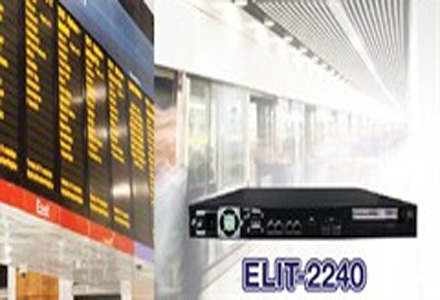
The company’s Mobility line are custom-built dual message signs created with strings of LED lights. The signs can be designed for any size and color and can be tied to road sensors to determine the appropriate message to display. Phil Perut, president of SES America, said the signs are cost-efficient option for applications that require two messages rather than an expensive full-color LED display board. Perut cited an example of a weigh-in-motion application planned in Georgia. As trucks trigger a sensor in the road, a sign indicates a right or left turn depending on the weight of the vehicle.
The company’s DMS Connect signs are connected to the cloud to display travel times in real time. Traditionally, traffic information is captured by road-side sensors and sent to a central traffic control center where travel times are calculated. The information then has to be transmitted back to the signs.
Connecting signs directly to the cloud allows travel times to be captured from travel time providers such as Google and TomTom, eliminating the need for dedicated road sensors and networking equipment. Flexibility is also achieved by allowing engineers to change routes remotely—as long as the travel time provider has that capability—while traditional systems are limited to routes where sensors are deployed.
“Virtually the entire world is covered,” said Perut. “You can convey travel time to drivers on arterial roads or in small towns. It’s like having an app deployed directly on the signs.”











